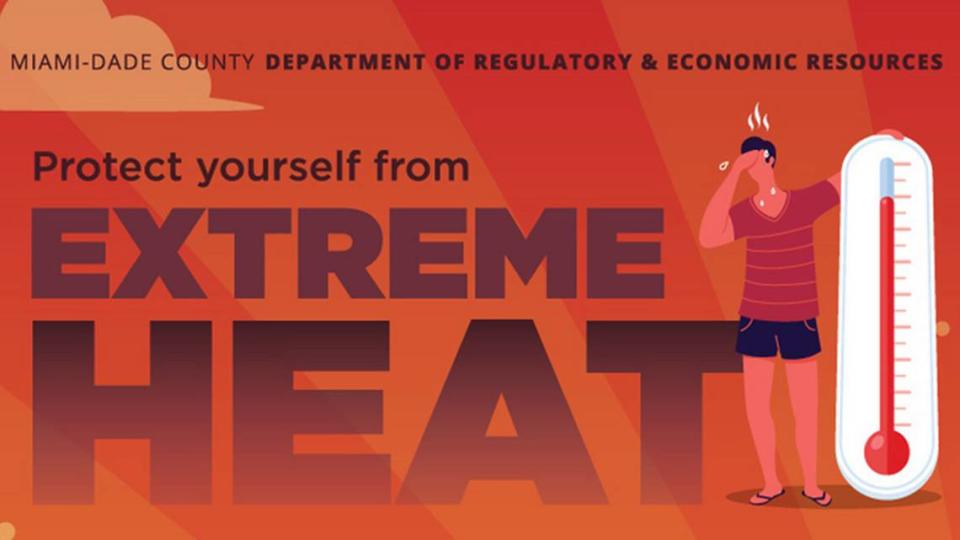Weather advisory issued for Miami and Broward. ‘Feels like’ temperature could hit 110
While Hurricane Idalia pummeled parts of the Gulf Coast on Wednesday, South Florida felt a breeze here and there.
Now that the storm has moved on, Miami-Dade and Broward returns to baking.
The National Weather Service issued a heat advisory for the region on Thursday. The advisory runs from 10 a.m. to 7 p.m.
The afternoon high temperature is forecast to hit the mid-90s, and could flirt with records for the day. But the “feels like” temperature, called the heat index, could rise to about 110.
“Hot temperatures and high humidity may cause heat illnesses to occur,” the weather service said in the advisory.
The tropical moisture left behind by Hurricane Idalia is drawing some of the heat, said Vivian Gonzalez, a meteorologist at WSVN-Channel 7. But there is some good news after the “extra hot” day, she said: lower humidity this weekend.
For now, Lissette Gonzalez, a meteorologist with Miami Herald news partner CBS News Miami, advised people to “stay hyrdrated and in the AC when possible.”
What is the heat index?
The heat index is a measure of how hot it really feels when relative humidity is factored in with the actual air temperature, according to the weather service. This is how hot it “feels like” on your skin on steamy days. The weather service in Miami issues a heat advisory if the index is forecast to be 105 degrees for at least a couple of hours.
The goal is to spread awareness so that people protect themselves from extreme heat that leads to about 34 deaths and hundreds of hospitalizations every year, according to Miami-Dade County estimates.
But Thursday is not all about the heat.
The forecast also calls for a 50% chance of rain.
Tips to prevent heat exhaustion and heat stroke

Miami-Dade County issued several hot weather survival tips, based on U.S. Centers for Disease Control and Prevention advice, and noted who is most at risk in recent postings.
Who is most at risk of heat-related illnesses: Older adults 65 and older, young children, people with chronic health conditions or mental illness, athletes who exercise outdoors, outdoor workers, people living unsheltered or with limited access to air conditioning, pregnant people, and pets.
What you should do:
▪ Stay cool by spending time in air-conditioned buildings.
▪ Avoid direct contact with the sun.
▪ Reduce physical activity and move to shaded areas.
▪ Do outdoor activities in the cooler morning or evening hours, and dampening your shirt or wrapping a wet scarf or bandana around your neck or forehead could also help.
▪ Stay hydrated and drink plenty of water or drinks with electrolytes if you’re sweating. Don’t wait until you’re thirsty to drink more. Use sunscreen, too, to protect against skin damage.
▪ Limit or avoid dehydrating caffeine and alcohol.
▪ Never leave infants, children or pets in a parked car, even if the windows are cracked open.
▪ Watch for signs of heat exhaustion or heat stroke. Seek medical care immediately if you know someone who experiences symptoms that could include high body temperature, headache, dizziness or nausea and confusion.

